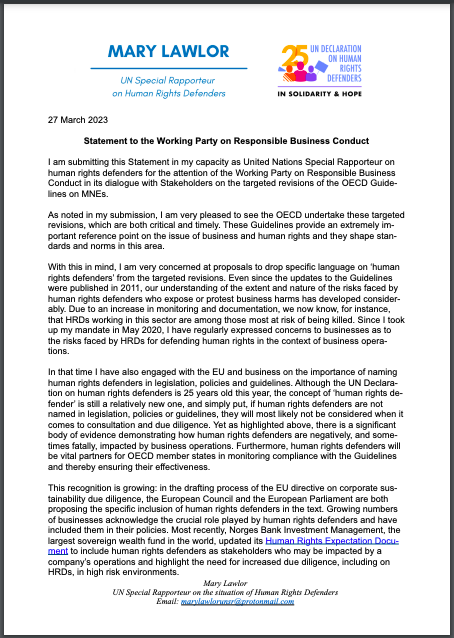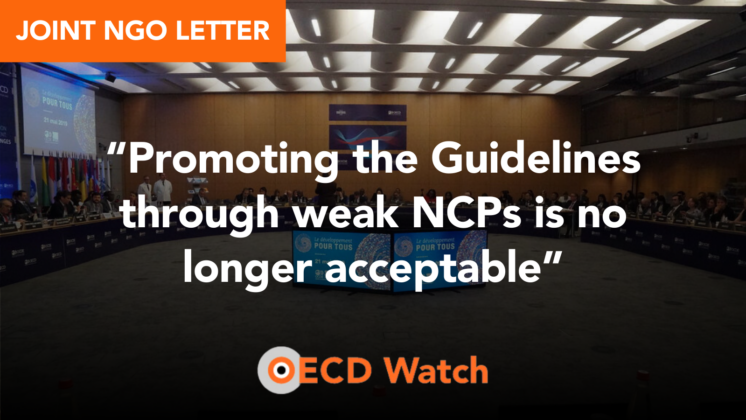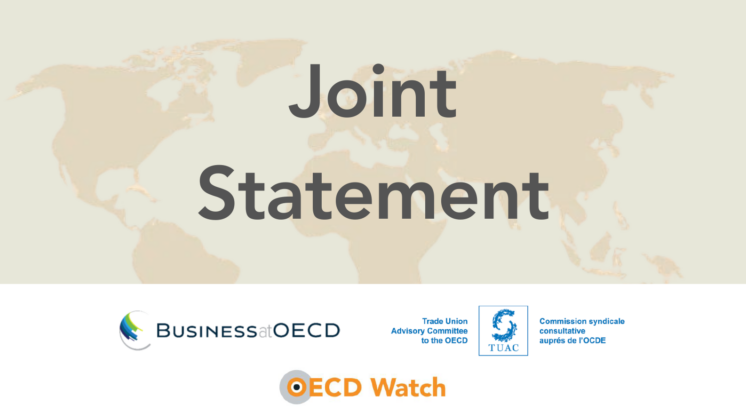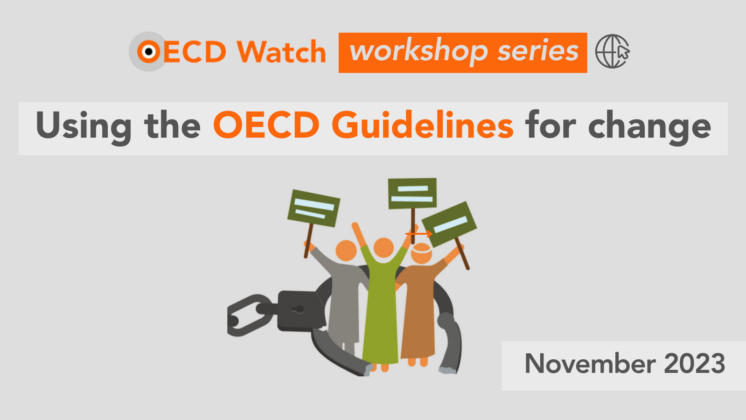Statement urges explicit use of term "human rights defender"
In a statement to the OECD Working Party on Responsible Business Conduct, the UN Special Rapporteur for Human Rights Defenders Mary Lawlor has urged governments to strengthen text on reprisals in the OECD Guidelines revision by ensuring explicit use of the term “human rights defenders.”
“Although the UN Declaration on human rights defenders is 25 years old this year, the concept of ‘human rights defender’ is still a relatively new one,” SR Lawlor writes. “Simply put, if human rights defenders are not named in legislation, policies or guidelines, they will most likely not be considered when it comes to consultation and due diligence. Yet…there is a significant body of evidence demonstrating how human rights defenders are negatively, and sometimes fatally, impacted by business operations.”
Lawlor notes that failing explicitly to recognise “human rights defenders” in the standards would cut against the approach of the draft EU Corporate Sustainability Due Diligence Directive as well as the policies and initiatives of most OECD member states. Lawlor writes that “the vast majority of OECD member States have prioritised the security and protection of human rights defenders” either through their membership in the EU and/or through national guidelines or policies on human rights defenders, protection mechanisms for human rights defenders, establishment of shelter cities or programmes for human rights defenders at risk, or the naming of human rights defenders as stakeholders for key guidelines.
The Working Party on RBC is meeting in Paris March 27-28 to discuss updates to the OECD Guidelines, including in relation to reprisals against human rights defenders. In respect of reprisals, OECD Watch is urging inclusion of the term “human rights defender” as well as other key amendments, including reference to the UN Declaration on human rights defenders and additional expectation of enterprises to take preventative steps such as adoption of zero tolerance policies towards reprisals and proactive engagement with stakeholders including states (whether or not they are business partners) to discourage their involvement in reprisals.
read more less













